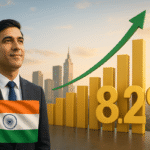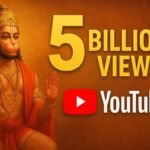The Bharatiya Janata Party (BJP) has lost one of its most respected veterans. Senior BJP leader Vijay Kumar Malhotra passed away at the age of 93 at the All India Institute of Medical Sciences (AIIMS), New Delhi. His death marks the end of an era in Delhi politics, where he was not only a guiding force for the BJP but also the first president of the Delhi unit. For decades, Malhotra remained a symbol of discipline, perseverance, and loyalty within the party.
Early Life and Political Journey
Born in 1931 in Lahore, undivided India, Vijay Kumar Malhotra’s political career spanned more than six decades. After Partition, he moved to India and became active in student politics. His association with the Rashtriya Swayamsevak Sangh (RSS) shaped his ideological path, leading him to join the Bharatiya Jana Sangh, which later evolved into the BJP.
He first came into prominence when he was elected as a Member of Legislative Assembly in Delhi in 1967. Over the years, he emerged as one of the most trusted lieutenants of BJP stalwarts such as Atal Bihari Vajpayee and L.K. Advani. Malhotra also served as a Lok Sabha Member of Parliament multiple times, representing constituencies in Delhi and Rajasthan.
Leadership in Delhi Politics
Malhotra’s leadership role as the first president of Delhi BJP laid the foundation for the party’s expansion in the capital. During the late 1970s and early 1980s, the Congress was the dominant political force in Delhi, but Malhotra’s consistent grassroots outreach helped BJP carve out its space. He contested as the party’s candidate for Chief Minister of Delhi and remained a key figure in opposition politics for years.
As an educationist and political leader, he was admired for his simple lifestyle and accessibility. Generations of BJP workers recall his ability to mentor young leaders while maintaining cordial relationships across party lines. His long service also coincided with significant national transformations, from the Emergency years to the economic reforms era, including major shifts like the later GST reforms that redefined India’s tax structure.

Parliamentary Career and Contributions
Beyond his role in Delhi, Malhotra’s political journey took him to Rajasthan, where he represented Jaipur in the Lok Sabha. His speeches often reflected a blend of regional concerns and national priorities. As a parliamentarian, he was known for raising issues of urban development, education, and governance.
Even though he stepped back from active politics in the later years, Vijay Kumar Malhotra remained a respected voice. He was often consulted by the BJP leadership on matters of organizational development and election strategy.
Passing of a Stalwart
At the age of 93, Vijay Kumar Malhotra was admitted to AIIMS due to age-related complications. Despite medical efforts, he breathed his last surrounded by family and close associates. His demise has been mourned widely by political leaders across the spectrum. Prime Minister Narendra Modi, senior BJP leaders, and even opposition figures expressed deep sorrow, highlighting his lifelong service to the nation.
Legacy That Inspires
Malhotra’s career stands as an inspiration for those entering public life. His commitment to democratic principles, discipline, and party ideology made him a respected figure even among rivals. The void created by his passing will be felt deeply within the BJP, especially in Delhi, where his leadership shaped the party’s roots.
His contributions will also be remembered in the context of India’s broader political journey, where seasoned leaders like him bridged the gap between the early years of independent India and today’s dynamic political landscape. His life underscores the importance of persistence, organizational strength, and adaptability in politics.
Final Thoughts
The passing of Vijay Kumar Malhotra is not just the end of a long and illustrious career but also the closing of a chapter in India’s political history. As the BJP and the nation pay their tributes, his legacy will continue to inspire younger generations of political leaders. His journey reminds us that politics is not merely about elections but about building institutions, shaping ideologies, and serving the people with dedication.
Follow Daily Fresh News and get the latest updates every day.








